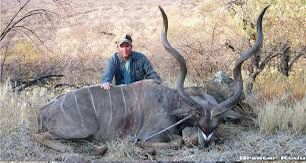At a time when world attention is consumed by the financial crisis, a far more pressing crisis deserving greater attention should be brought to the forefront.
This is the crisis of global hunger, which kills a child every six seconds, said the executive director of the World Food Programme, Josette Sheeran. “We remember those who have lived with the ache of hunger, for too long … and who now need our help even more,” Sheeran stated.As a result of soaring food prices, the number of people going hungry in the world had increased to 75 million at the end of 2007.This crisis is a result of decreasing investments in agriculture during the last 30 years in the world’s poorest countries.Moreover the share of development aid provided for agriculture declined from 17 per cent in 1980 to 3 per cent in 2006, and financial institutions have dramatically reduced funds provided for agriculture.”Agriculture has to be able to double global food production by 2050, when the current population of the globe now at 6 billion, reaches 9 billion,” said the director-general of the Food and Agriculture Organisation of the United Nations (FAO), Jacques Diou.”This is the only way to mobilise the needed funds for a renewal of agriculture, which are estimated at US$30 billion per year by the special High-Level Task Force on the Global Food Crisis,” he said.Ensuring food security for the people of the world, especially in light of climate change, may be the biggest challenge of this century.More than 860 million people in the world today are afflicted by hunger.Of those, about 830 million live in developing countries, the very countries expected to be worst affected by climate change.Climate change affects everyone but it is the poorer regions that are already beginning to suffer most from its effects.Their situation is likely to worsen in coming decades.The worst hit will be the hundreds of millions of people already vulnerable to hunger: small-scale crop and animal producers, fishers and foresters.Climate change will affect the availability of land, water and biodiversity.Changes in temperature and precipitation, as well as more frequent extreme weather patterns are expected to reduce agricultural production, with the shortfalls having negative impacts on worldwide access to food.Therefore, climate change is likely to increase migration to richer countries, while rising sea levels may force many communities in low-lying coastal areas and river deltas to move to higher ground.”These risks need to be taken into account.And the analysis of food security needs to be placed in a completely new context,” said Diouf.Yemen Observer”We remember those who have lived with the ache of hunger, for too long … and who now need our help even more,” Sheeran stated.As a result of soaring food prices, the number of people going hungry in the world had increased to 75 million at the end of 2007.This crisis is a result of decreasing investments in agriculture during the last 30 years in the world’s poorest countries.Moreover the share of development aid provided for agriculture declined from 17 per cent in 1980 to 3 per cent in 2006, and financial institutions have dramatically reduced funds provided for agriculture.”Agriculture has to be able to double global food production by 2050, when the current population of the globe now at 6 billion, reaches 9 billion,” said the director-general of the Food and Agriculture Organisation of the United Nations (FAO), Jacques Diou.”This is the only way to mobilise the needed funds for a renewal of agriculture, which are estimated at US$30 billion per year by the special High-Level Task Force on the Global Food Crisis,” he said.Ensuring food security for the people of the world, especially in light of climate change, may be the biggest challenge of this century.More than 860 million people in the world today are afflicted by hunger.Of those, about 830 million live in developing countries, the very countries expected to be worst affected by climate change.Climate change affects everyone but it is the poorer regions that are already beginning to suffer most from its effects.Their situation is likely to worsen in coming decades.The worst hit will be the hundreds of millions of people already vulnerable to hunger: small-scale crop and animal producers, fishers and foresters.Climate change will affect the availability of land, water and biodiversity.Changes in temperature and precipitation, as well as more frequent extreme weather patterns are expected to reduce agricultural production, with the shortfalls having negative impacts on worldwide access to food.Therefore, climate change is likely to increase migration to richer countries, while rising sea levels may force many communities in low-lying coastal areas and river deltas to move to higher ground.”These risks need to be taken into account.And the analysis of food security needs to be placed in a completely new context,” said Diouf.Yemen Observer
Stay informed with The Namibian – your source for credible journalism. Get in-depth reporting and opinions for
only N$85 a month. Invest in journalism, invest in democracy –
Subscribe Now!






